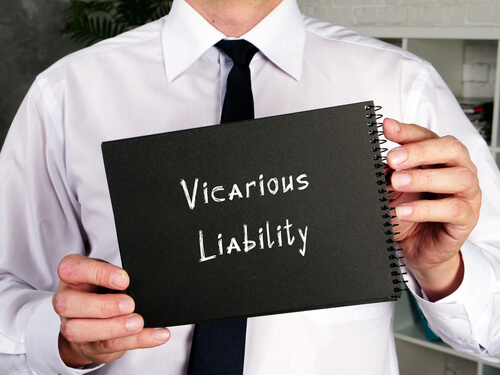The law mandates holding someone accountable whenever there is a legal claim for personal injury or property damages. The question is what happens when the person who causes the harm cannot be held responsible for their actions? This is where vicarious liability comes in. It is a legal doctrine that holds one person responsible for the wrongful actions of another person. Understanding vicarious liability is crucial, especially in the global context, where more and more businesses operate across international borders. In this post, we will explore what vicarious liability is and how it applies in international law.
What is Vicarious Liability?
Vicarious liability refers to the legal responsibility of one person for the actions of another. For example, an employer is responsible for the actions of their employee, or a parent is accountable for the actions of their child. This doctrine is based on the idea that the person who benefits from the actions of another should also be responsible for any harm they cause. In the case of an employer, for instance, the employer benefits from the work of their employee, and therefore should be held liable if the employee causes harm to someone else.
Vicarious Liability Within The International Law
Vicarious liability is particularly important in international law, where it can be challenging to hold individuals accountable for their actions across borders. This is because different countries have different laws and legal systems, which can make it difficult to determine who is responsible for a specific action. Nevertheless, international law formulated several principles to elucidate who is accountable in such situations. For instance, the principle of “state responsibility” illustrates that a state’s government officials is responsible for their actions, even if they are operating outside of the country..
The “parent company liability” doctrine is another crucial principle that applies when a subsidiary’s actions result in the parent company who is accountable. This is particularly relevant in cases where multinational corporations operate across international borders, and where it can be challenging to hold individual executives responsible for the actions of the entire company. The parent company liability doctrine holds that the parent corporation has a duty to ensure that its subsidiary complies with all relevant laws and regulations and is liable if the subsidiary’s actions lead to harm.
Limits of Vicarious Liability
Finally, It is worth noting that vicarious liability extends beyond situations where an individual benefits from another’s actions. In certain instances, individuals or organizations are accountable for the wrongful actions of others simply because they possessed the capability to prevent the harm from transpiring. This is known as “negligent supervision” liability and can come into play in cases where an organization fails to properly train or supervise its employees. Negligent supervision liability can be particularly significant in cases where the harm caused is severe, such as in cases of sexual abuse or assault.
Conclusion
Vicarious liability is an essential legal concept that holds individuals and organizations accountable for the harm caused by others. In the global context, vicarious liability is particularly important, as it helps to clarify who is liable in situations where multiple there are multiple legal systems. By understanding the principles of vicarious liability, individuals and organizations can take steps to protect themselves from legal liability and ensure that they are operating in a responsible and ethical manner. Ultimately, vicarious liability is a vital component of the rule of law. It helps to ensure individuals are are liable for their actions. For more information about our business litigation practice, please visit Miami & International Business Litigation Lawyer – Transnational Matters


